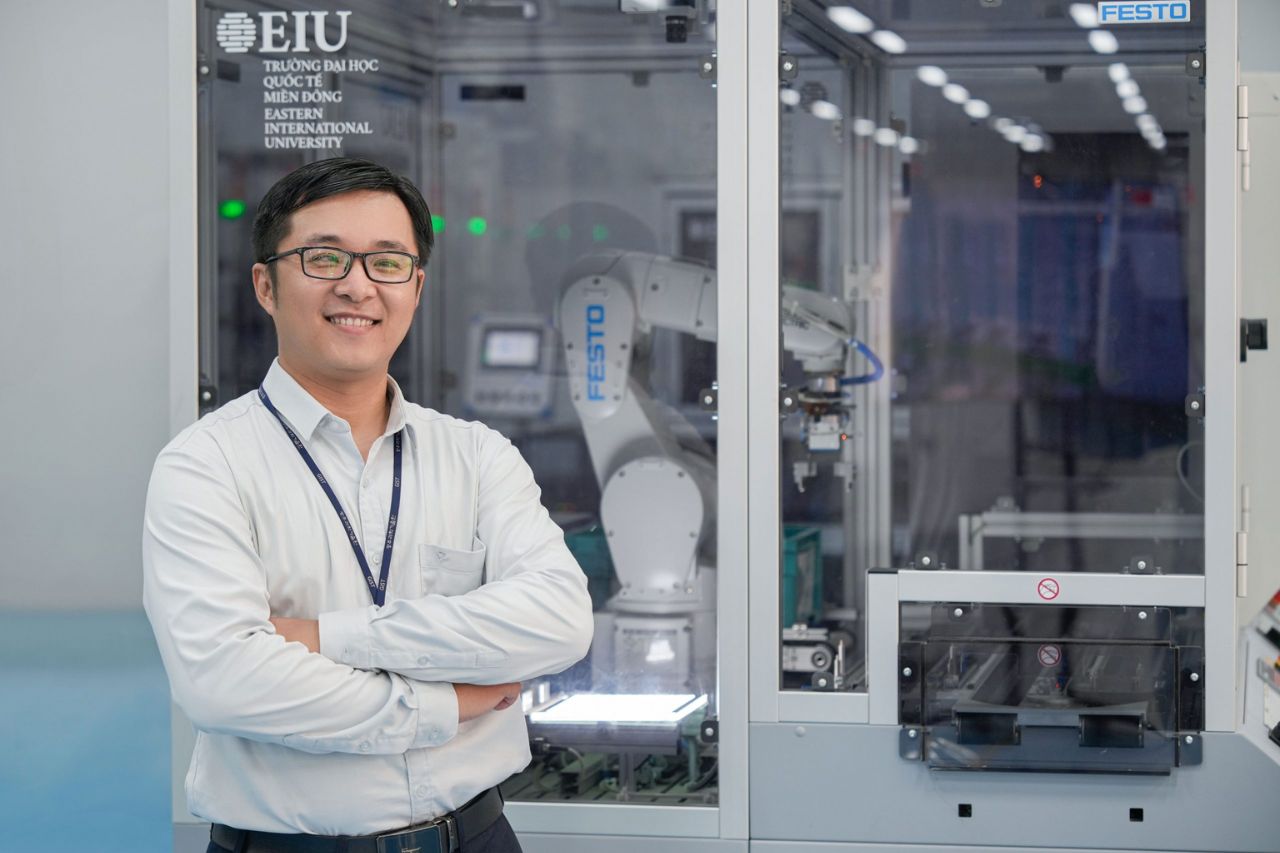Research by EIU Lecturer Paves the Way for 3D Biomedical Robot Navigation and Targeted Drug Delivery
A recent study by a lecturer from Eastern International University (EIU) marks a breakthrough in the precise navigation of biomedical microrobots within 3D blood vessel models, paving the way for applications such as targeted drug delivery. The research was published in the IEEE Robotics and Automation Letters (Q1, December 2024).
In future medical procedures, the ability to accurately guide microrobots inside the human body is a key factor in delivering medication directly to affected areas. However, most current navigation systems are limited to 2D spaces and fall short of the accuracy required in complex 3D environments like the circulatory system.
To address this challenge, the research—led by Dr. Bui Minh Phu of EIU, Prof. Jungwon Yoon, and collaborators from the Gwangju Institute of Science and Technology (GIST), Korea—proposes a novel 3D localization system using Magnetic Particle Imaging (MPI). This technique enables precise microrobot control within 3D vascular models with a localization error of less than 5 mm.
Dr. Bui Minh Phu – Lecturer at EIU’s School of Engineering – Lead Author of the Study
The study introduces a real-time 3D navigation method by dynamically controlling the field-free point (FFP), allowing for segment-specific scanning of blood vessels, in contrast to previous methods that required full-area scans. The system utilizes a virtual FFP model, enabling intuitive robot control using a mouse, keyboard, or joystick—similar to operating a video game—thus enhancing potential applications in robotic endoscopic surgery.
With a scanning speed of 4 images per second, the system achieves high accuracy, boasting an average localization error of under 0.7 mm in fluid environments simulating real blood vessels. Notably, microrobots containing magnetic particles were successfully navigated through complex bifurcations within a 3D vascular model, demonstrating high flexibility and effectiveness in biomedical settings.
This research not only opens up new avenues for targeted drug delivery, b
Magnetic Particle Imaging Technology
ut also lays the groundwork for minimally invasive surgery, cancer treatment, and smart drug distribution systems.
“We aim to develop technologies that are both precise and highly interactive—enabling humans to control microrobots as effortlessly as using familiar everyday devices,” said Dr. Bui Minh Phu, lead author of the study.
Read the full paper at: https://ieeexplore.ieee.org/abstract/document/10704993



